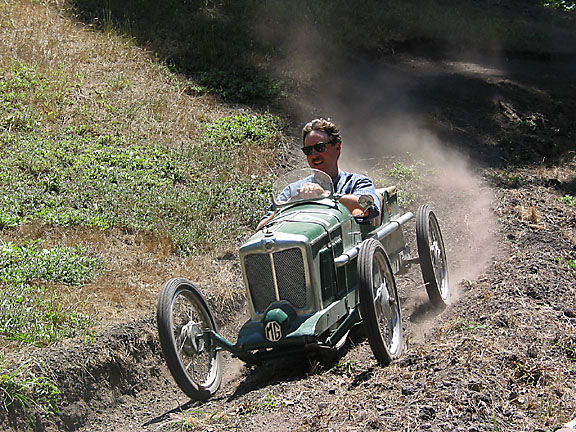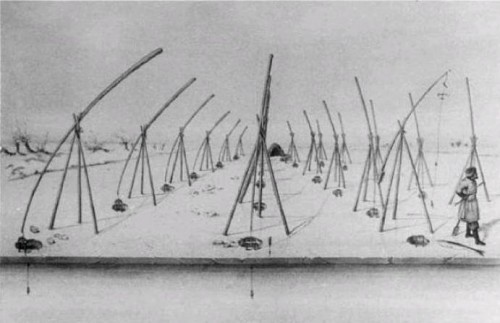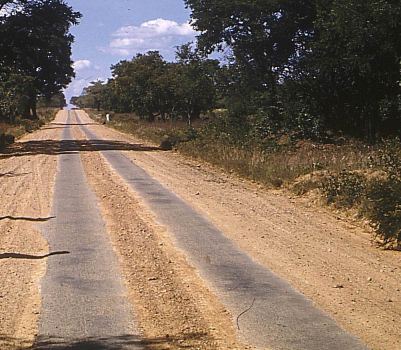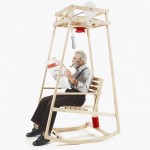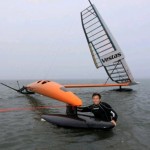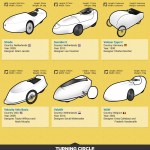Our fellows in the first world often come to visit and give us their well intentioned but often very problematic “solutions”. We thought, why don’t we pay back? Dx1W is a competition for designers, artists, scientists, makers and thinkers in developing countries to provide solutions for First World problems. Design for the first world. Via Wired.
DIY Replicas of 1930s Race Cars
CycleKarts are small, lightweight, nimble machines made by their drivers for the pursuit of motoring sport. They’re not serious speed-machines or status-generating show cars. They’re purely for the gritty fun and satisfaction of tearing around in a machine you’ve built yourself. Their name originated from the use of bicycle or motorcycle tyres. More.
Related: How to make an adult soapbox kart.
Has There Been Progress Since 1250?
“Even in backward mining communities, as late as the sixteenth century more than half the recorded days were holidays; while for Europe as a whole, the total number of holidays, including Sunday, came to 189, a number even greater than those enjoyed by Imperial Rome. Nothing more clearly indicates a surplus of food and human energy, if not material goods. Modern labor-saving devices have as yet done no better.”
Quoted from “Myth of the Machine : Technics and Human Development“, Lewis Mumford, 1967.
Automatic Line Fishing in River Volga, Russia (1861)
To fish for the white sheatfish in winter on the River Volga, a fishing hook was fastened to the end of a long lever by means of a short line. The lever rested with its centre on a block and had a counterweight on the other end. The gear was so arranged that the lever arm carrying the fish hook was pulled downwards and fastened to a support frozen in the ice. If the fish took the hook, it released the support by its movements and was then tossed by the counterweight onto the ice.
Quoted from “Fish Catching Methods of the World“, Otto Gabriel, 2005. Excerpts.
Peak Asphalt: the Return of Gravel Roads
“Gravel roads don’t mean the end of transportation. We’ll just have to slow down considerably, and that may not be a bad thing.”
Read: The return of gravel roads.
Picture: a strip road.
Has There Been Progress Since 1250?
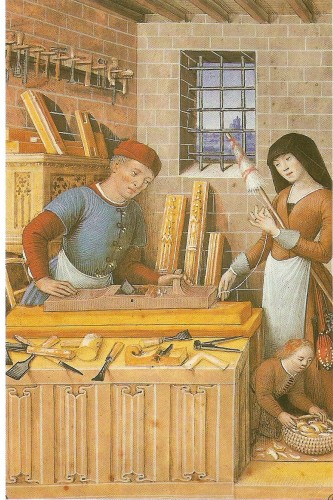 “Fourastié [A French economist] is right in putting the case numerically to dramatize the shortening of the work week and the enormous transformation in living standards and in the qualitative nature of life. The case is indeed simple if 1950 is compared with 1815. But it is no longer quite so simple if 1950 is compared with 1250. It is important to consider, for labor, not only time but intensity.”
“Fourastié [A French economist] is right in putting the case numerically to dramatize the shortening of the work week and the enormous transformation in living standards and in the qualitative nature of life. The case is indeed simple if 1950 is compared with 1815. But it is no longer quite so simple if 1950 is compared with 1250. It is important to consider, for labor, not only time but intensity.”
“It is possible to make a meaningful comparison between the fifteen-hour workday of a miner in 1830 and the seven-hour workday of 1950. But there is no common denominator between the seven-hour day of 1950 and the fifteen-hour day of the medieval artisan. We know that the peasant interrupts his workday with innumerable pauses. He chooses his own tempo and rhythm. He converses and cracks jokes with every passer-by.”
“We cannot say with assurance that there has been progress from 1250 to 1950. In so doing, we would be comparing things which are not comparable. Therefore, it is advisable to limit ourselves to saying that there has been progress since the beginning of the industrial era, which was founded on the breakup and destruction of the non-comparable and vanished old order.”
Quoted from “The Technological Society“, Jacques Ellul, 1964 (p192) / Original work: “La technique ou l’enjeu du siècle”, 1954. The illustration is a detail of “Les quatre états de la société”, a late 15th century painting by Jean Bourdichon.
